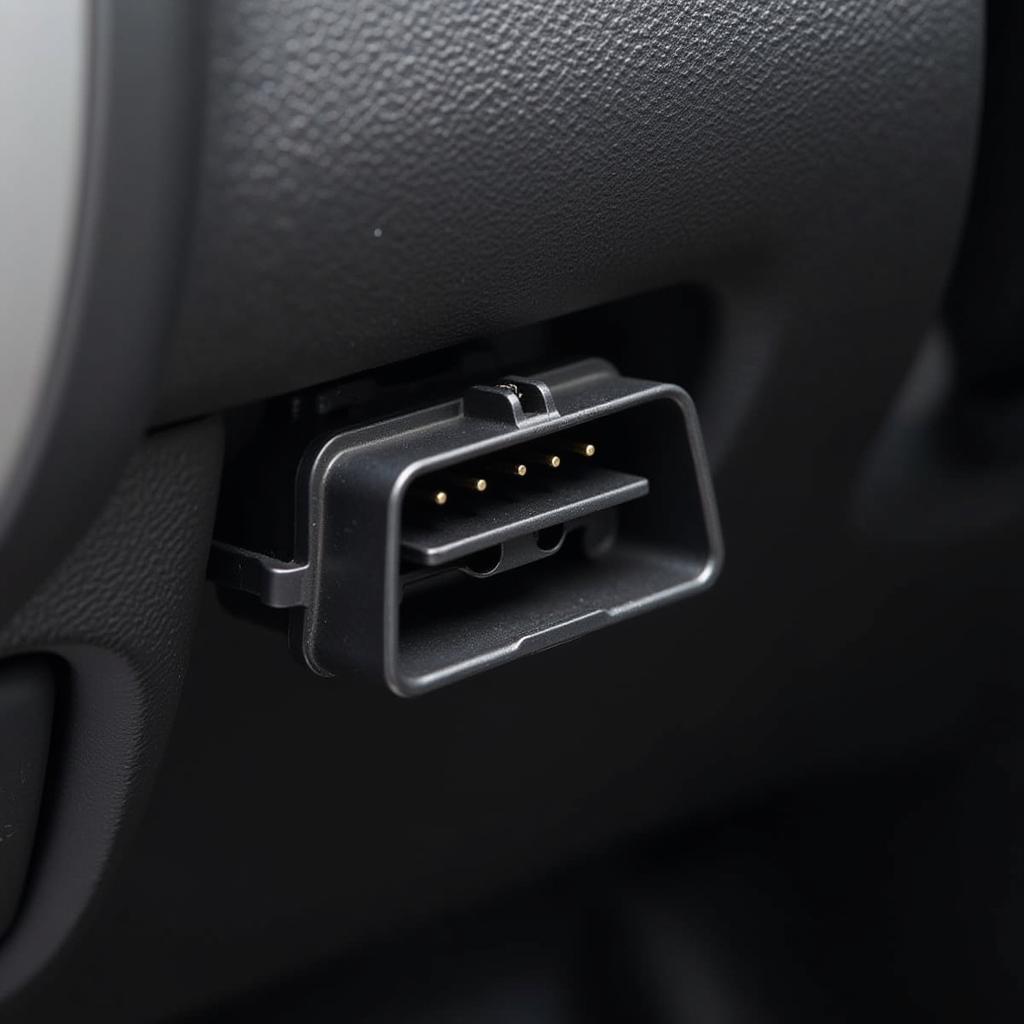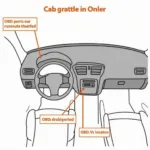Nissan vehicles, known for their reliability and performance, are equipped with sophisticated onboard diagnostic systems. These systems use OBD2 codes to communicate potential problems. Understanding these codes can help you address issues quickly, saving you time and money at the mechanic. This comprehensive guide will delve into the world of OBD2 codes specific to Nissan, empowering you to take charge of your vehicle’s health.
What are OBD2 Codes and Why Should Nissan Owners Care?
OBD2, or On-Board Diagnostics, is a standardized system that allows external electronics to interface with your Nissan’s computer. When your car’s computer detects an issue – whether it’s a sensor malfunction, emissions problem, or something else – it generates a specific code stored in its memory. This code can then be read by an OBD2 scanner, a handy device that translates these codes into understandable descriptions.
For Nissan owners, this means:
- Early Detection: Identifying problems before they escalate into costly repairs.
- DIY Diagnostics: Gaining a better understanding of your vehicle’s health and potentially resolving minor issues yourself.
- Informed Decisions: Communicating more effectively with mechanics and making informed repair decisions.
 Nissan OBD2 Port
Nissan OBD2 Port
Common Nissan OBD2 Codes: Decoding the Messages
While the specific codes and their meanings can vary depending on the model year and system, some common Nissan OBD2 codes include:
- P0100 – Mass Air Flow (MAF) Sensor Circuit Malfunction: This indicates a problem with the sensor responsible for measuring the amount of air entering the engine, potentially affecting fuel efficiency and engine performance.
- P0171 – System Too Lean (Bank 1): This points to a situation where the engine is running lean, meaning there is too much air compared to fuel. This can lead to reduced engine power and potential damage.
- P0300 – Random/Multiple Cylinder Misfire Detected: A misfire occurs when a cylinder fails to ignite the air-fuel mixture properly, resulting in rough idling, poor acceleration, and increased emissions.
- P0420 – Catalyst System Efficiency Below Threshold (Bank 1): This suggests a problem with the catalytic converter, a critical component in reducing harmful emissions.
Troubleshooting Nissan OBD2 Codes: A Step-by-Step Approach
Finding an OBD2 code in your Nissan doesn’t necessarily mean a trip to the mechanic is inevitable. Here’s a general approach to troubleshooting:
- Record the Code: Use an OBD2 scanner to retrieve the exact code and write it down.
- Research the Code: Use online resources like OBDFree to understand the code’s meaning and potential causes.
- Check for Simple Fixes: Depending on the code, simple checks might involve inspecting vacuum hoses, tightening gas caps, or examining wiring connections.
- Clear the Code: After addressing potential issues, use the OBD2 scanner to clear the code and see if it returns.
- Seek Professional Help: If the code persists or you’re uncomfortable troubleshooting further, consult a qualified mechanic.
Beyond the Basics: Advanced Diagnostics for Nissan Vehicles
For those comfortable with more in-depth diagnostics, advanced OBD2 scanners and software can offer:
- Live Data Streams: View real-time data from various sensors, providing insights into engine performance, fuel system operation, and more.
- Freeze Frame Data: Access a snapshot of sensor readings at the time a fault code was triggered, aiding in diagnosis.
- Bi-Directional Control: Perform active tests on components, such as activating solenoids or cycling relays, to pinpoint issues.
Preventative Maintenance: Keeping Those Codes at Bay
The best way to deal with OBD2 codes is to prevent them in the first place. Regular maintenance, as outlined in your Nissan owner’s manual, plays a vital role.
- Regular Oil Changes: Clean oil ensures proper engine lubrication and prevents premature wear.
- Air Filter Replacement: A clean air filter allows for optimal airflow, contributing to efficient combustion and reduced emissions.
- Spark Plug Inspection/Replacement: Worn spark plugs can lead to misfires and other engine performance issues.
Conclusion: Empowering Nissan Owners Through OBD2 Knowledge
OBD2 codes are not cryptic messages to be feared but rather valuable tools for understanding and maintaining your Nissan. By familiarizing yourself with these codes and adopting a proactive approach to diagnostics and maintenance, you can keep your Nissan running smoothly for miles to come. Remember, knowledge is power, especially when it comes to your vehicle’s health.
